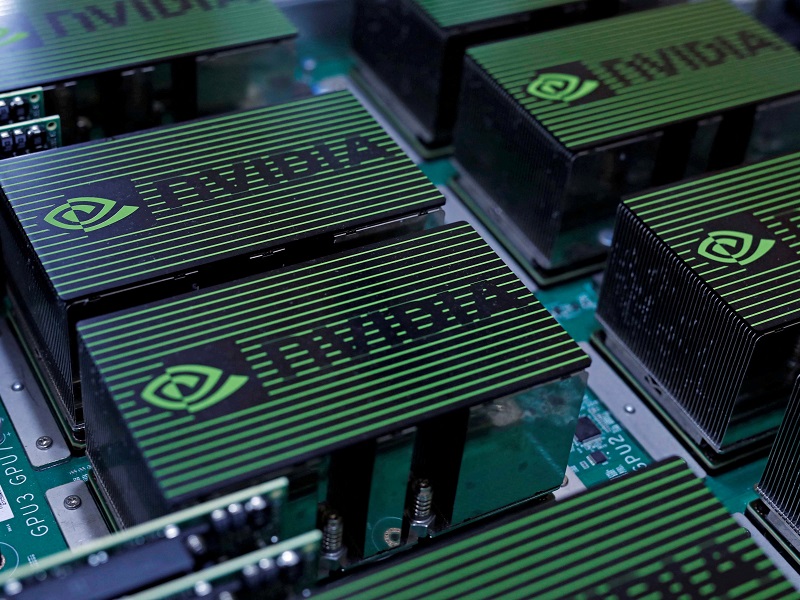US President Donald Trump upended decades of US national security policy, creating an entirely new category of corporate risk, when he made a deal with Nvidia to give the US government a cut of its sales in exchange for resuming exports of banned AI chips to China.
Historically, the US government made decisions to control the export of sensitive technologies on national security grounds. Those decisions were viewed as non-negotiable; if a technology was controlled, companies could not buy their way around those controls, no matter how lucrative the foregone foreign sales.
On Monday, Mr Trump raised the prospect of ending that era, saying he would allow Nvidia to sell its H20 chips to China in exchange for the US government receiving a 15 per cent cut of the company’s sales of some advanced chips in that country. He made a similar deal with Nvidia’s smaller rival AMD.
He also told reporters he was open to allowing Nvidia to sell a scaled-down version of its current flagship Blackwell chips to China.

Months earlier, his own administration had banned the sale of H20 chips to China, reversing the decision in July as part of what the government said were negotiations on rare earths.
The latest move drew condemnation from US lawmakers in both parties who warned that it risked creating a pay-for-play framework for the sale of sensitive technologies to US adversaries, a concern echoed by analysts and legal experts.
“Export controls are a frontline defense in protecting our national security, and we should not set a precedent that incentivizes the government to grant licenses to sell China technology that will enhance its AI capabilities,” said US Representative John Moolenaar, a Michigan Republican who chairs the House Select Committee on China.
Representative Raja Krishnamoorthi of Illinois, the ranking Democrat on the same committee, said that “by putting a price on our security concerns, we signal to China and our allies that American national security principles are negotiable for the right fee.”
To be sure, the Trump administration has said the national security risks of resuming H20 sales are minimal because the chip was sold widely in China.
US Commerce Secretary Howard Lutnick last month described the H20 as Nvidia’s “fourth-best chip” in an interview with CNBC. He said it was in US interests for Chinese firms to keep using American technology.
Legal?
But the deal is extremely rare for the US and marks Mr Trump’s latest intervention in corporate decision-making, after pressuring executives to invest in American manufacturing and demanding the resignation of Intel’s chief executive Lip-Bu Tan over his ties to Chinese companies.
It is unclear whether Mr Trump’s move is legal.
The US Constitution prohibits Congress from levying taxes and duties on articles exported from any state. Trade lawyer Jeremy Iloulian said it is hard to tell if this would be considered an “export tax” or some other form of payment without knowing more about the agreement.
“Up until today, there has never been a consideration of how much companies need to pay to receive an export license,” Mr Iloulian said.
University of California San Diego School of Global Policy and Strategy professor Kyle Handley added: “It sure looks like an export tax to me … they can call it whatever they want. It really looks a lot like the government is skimming a little bit off the top.”
When asked if Nvidia had agreed to pay 15 per cent of revenue to the US, a company spokesperson said, “We follow rules the US government sets for our participation in worldwide markets.”
“While we haven’t shipped H20 to China for months, we hope export control rules will let America compete in China and worldwide,” the spokesperson added.
A spokesperson for AMD said the US approved its applications to export some AI processors to China but did not directly address the revenue-sharing agreement and said the company’s business adheres to all US export controls.
“I think it’s fair to say that everything now in this administration seems negotiable in ways that were not the case before,” said Sarah Kreps, a professor at the Brooks School of Public Policy at Cornell University. “I don’t think this is unique in that this will be the last kind of deal like this that we see.”
‘Slippery slope’
Equities analysts said the levy could hit margins at chipmakers and set a precedent for Washington to tax critical US exports. “It feels like a slippery slope to us,” said Bernstein analysts, who expect the deal to cut gross margins on the China-bound processors by 5 to 15 percentage points, shaving about a point from Nvidia and AMD’s overall margins.
“Naturally, not only chipmakers but also companies selling other strategic products to China will wonder if the remittance model could apply to their industries,” said Hendi Susanto, a portfolio manager at Gabelli, which holds shares in Nvidia.
“For sellers of strategic products to China, remittance could be a burden – or a lifeline to preserve market access to huge and growing opportunities in China,” Mr Susanto said.
– Reuters
Do you know more? Contact James Riley via Email.
